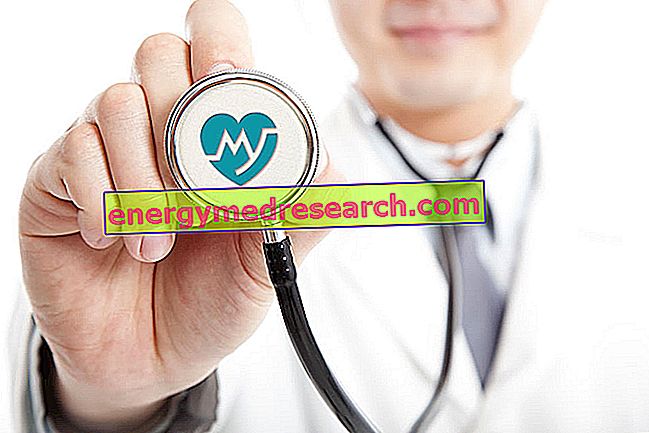Definition
Alcoholic hepatitis indicates an inflammatory process that affects the liver. Together with alcoholic steatosis and cirrhosis, alcoholic hepatitis completes the trio of the main forms of alcoholic liver disease. Alcoholic hepatitis can be considered as the stage following hepatic steatosis and the one immediately preceding cirrhosis; in severe cases, it can even compromise the patient's life.
Causes
Over time alcohol abuse is the main etiological element of alcoholic hepatitis; in addition to alcoholism, it is possible to identify further risk factors for the manifestation of the disease: genetic predisposition, metabolic alterations, patient malnutrition.
Symptoms
The hepatic inflammation that accompanies alcoholic hepatitis can occur in acute form, with abdominal pain, fever and lack of appetite, or chronic; in the latter case, the symptoms are more vague (liver pain, low-grade fever, general malaise, nausea, vomiting). These signs can be associated with the typical signs of cirrhosis and its complications, such as ascites, gastro-esophageal haemorrhage, jaundice.
Information on Alcoholic Hepatitis - Drugs for the Treatment of Alcoholic Hepatitis is not intended to replace the direct relationship between health professional and patient. Always consult your doctor and / or specialist before taking Alcoholic Hepatitis - Drugs for the Treatment of Alcoholic Hepatitis.
drugs
Given the severity of the condition, quitting drinking alcohol is the first intelligent rule to be implemented, both to reverse the condition and to prevent its degeneration into liver cirrhosis. It should be remembered that the prevention of alcoholic liver disease is possible, and involves the control or, even better, the abstention from drinking alcohol. Furthermore, the risk of serious complications is quite high: just think, for example, that 10-15% of patients with acute alcoholic hepatitis undergo death.
As often happens, most patients with alcoholic hepatitis find it hard to stop drinking; therefore, psychological support and administration of drugs to treat alcoholism is recommended.
Patients with alcoholic hepatitis are often malnourished; therefore they should follow a targeted and specific diet, as well as taking any vitamin and mineral supplements.
The drugs most indicated for the treatment of alcoholic hepatitis are corticosteroids and pentoxifylline, which are essential for reducing inflammation; in the circumstance in which not even the drugs were able to reverse the pathology, the patient can undergo liver transplantation.
Nutritional therapy and vitamin supplementation : it is indispensable in most patients suffering from alcoholic hepatitis, given that malnutrition seems to be an omnipresent element in this type of patient. In general, patients with alcoholic hepatitis are malnourished, anorexic due to the alteration of nutrient metabolism and liver deposits. It is recommended to follow a diet of at least 2, 000 kcal (with a protein intake of 1g per kilo of body weight), enriched with vitamin supports (eg Multicentrum, Supradyn, Be-Total Plus). Folic acid supplements are also widely used in therapy for malnutrition in the context of alcoholic hepatitis.
In particular, sometimes the integration of s-adenosyl-methionine (ALC Dymatize Nutrition, useful to promote the synthesis of glucagon, being a source of cysteine) and lecithin polinsature (useful for protecting the hepatocyte membrane) is recommended. Soy-based lecithin supplements appear to prevent the formation of cirrhosis and fibrosis in the context of alcoholic hepatitis.
Deepening: glucagon, being a hepatic growth factor, can ideally be used in therapy for the treatment of alcoholic hepatitis. In fact, unfortunately, the therapeutic activity of glucagon-based drugs does not seem to bring significant benefits.
Corticosteroids : the administration of steroids to patients with alcoholic hepatitis is useful for reducing inflammation, through the alteration of cytokine synthesis. In practice, the therapeutic use of corticosteroids does not always generate beneficial effects: the severity of the disease at the time of diagnosis appears to be a decisive factor in predicting the success or failure of the treatment. Some of the drugs used in the treatment of alcoholic hepatitis are:
- Prednisolone (eg. Solprene, Deltamidrina)
- Cortisone (eg Cortis Acet, Cortone)
- Methylprednisolone (eg Medrol, Urbason, Advantan, Depo-medrol, Solu-medrol)
The dosage schedule of the drugs listed above should be carefully determined by the doctor based on the severity of the condition.
Peripheral vasodilators:
- Pentoxifylline (eg. Trental): the drug is a selective phosphodiesterase inhibitor, able to exert an anti-inflammatory therapeutic action; for this reason, it is used for the treatment of alcoholic hepatitis as a hepatic inflammatory agent. Ideally, the drug can replace corticosteroids. Consult your doctor. As an indicative dose, 400 mg of active are generally administered, three times a day, orally. Pentoxifylline is sometimes associated with methylprednisolone.
Tionamids :
- Propylthiouracil (eg Propycil): the drug acts as an immunosuppressant. In an alcoholic or a person with alcoholic liver disease, higher oxygen consumption is observed in the liver. Recently, it has been observed that the administration of this drug can reduce the loss of oxygen, favoring blood flow to the liver. The dosage must be carefully determined by the doctor. Propylthiouracil is not the drug of choice for the treatment of alcoholic hepatitis; furthermore, the benefits obtained are often conflicting, therefore the drug has not obtained a univocal scientific approval.
Anabolic steroids : this class of drugs has also been identified as a possible remedy for the degeneration of alcoholic hepatitis in severe forms; in some patients, the administration of these drugs appears to have reduced the mortality given by the disease. However, there are no satisfactory results.
- Oxandrolone (eg. Anavar): indicatively, the drug can be taken at a dose of 2.5-10 mg, orally, 2-4 times a day. In the context of alcoholic hepatitis, it is recommended not to exceed 20 mg a day.



